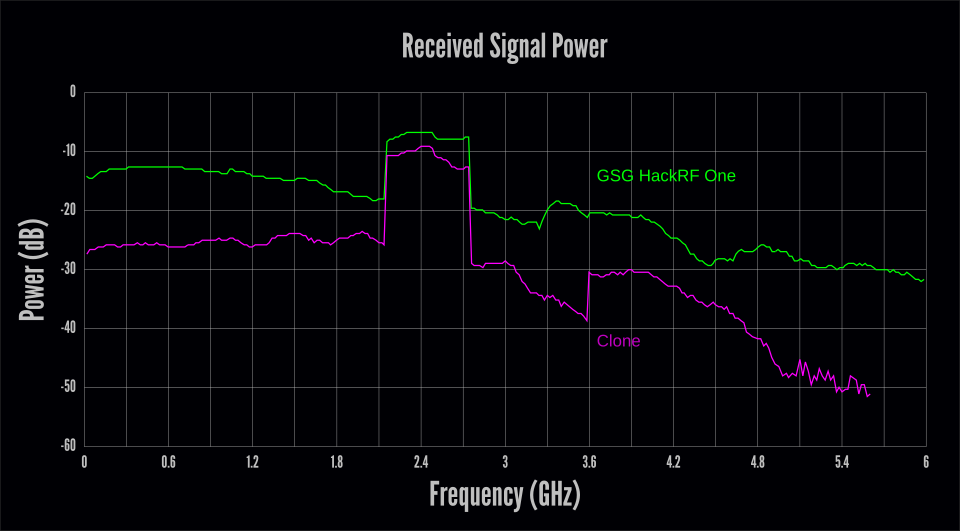Comparing a HackRF Clone against the Original
Over on the Great Scott Gadgets blog Michael Ossmann, the lead creator of the original HackRF has put out a post comparing his original HackRF with one of the many clones on the market. The HackRF is a low cost wideband transmit capable SDR that was released via Kickstarter crowd funding back in 2014. Even up until today it is one of the most popular SDRs for radio experimenters due to it's versatility, open source nature, and low cost.
Within the past few years Chinese clones of most SDRs including the HackRF have appeared on the market often at substantially reduced pricing. As the HackRF is fully open source hardware, copies are legally allowed, however buying a clone does not support the original developer and can put strain on their support services. The general consensus amongst clone purchasers is that they work fine, but when there are problems you take the risk of not being able to expect any sort of support or warranty from the the cloner. Also while the clones work fine, up until now we have not yet seen any performance comparisons yet.
In his post Michael Ossmann tests a clone which is even advertised to have improved upon the original design. Michaels post goes into more detail, but long story short, the clone has clear transmit performance issues above 1 GHz, and at the worst point produces 22 dB (150x) less power out compared to the original. In terms of receive performance the clone performs even worse, showing very poor sensitivity when compared to the original. Michael notes that this clone would not have passed the QC procedure used for the original.
We believe that the original HackRF has created significant value to the RF community through software, tutorials and their hardware. Over the years countless projects and research/conference papers have been enabled by the HackRF. So even regardless of potential performance and warranty issues we think it is ethical to support the original creators if your budget allows it.

